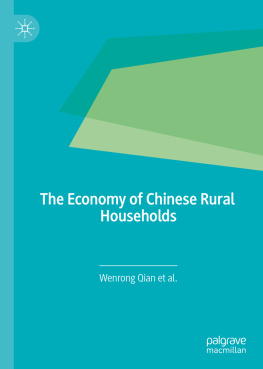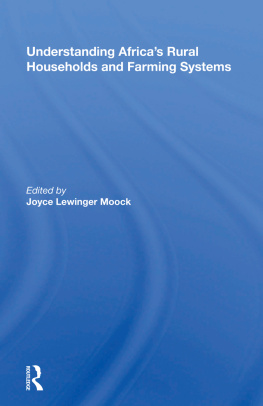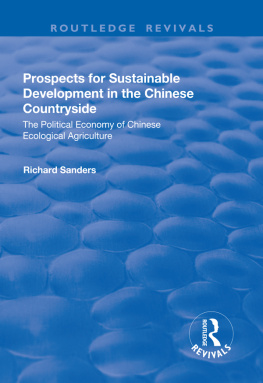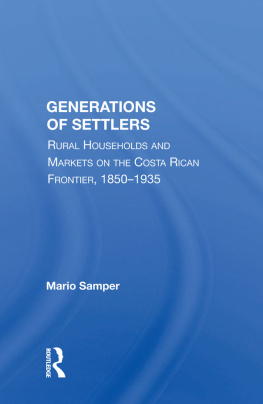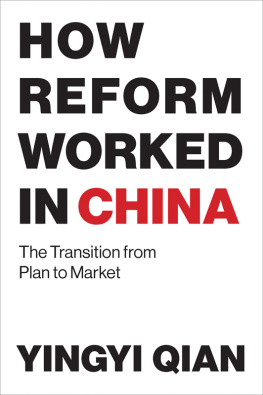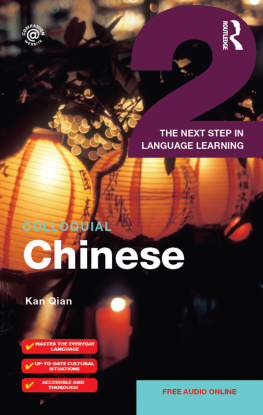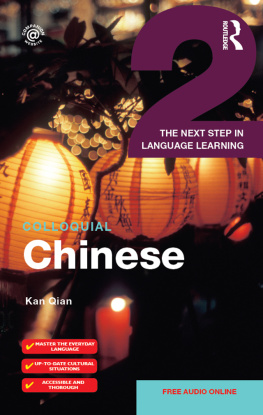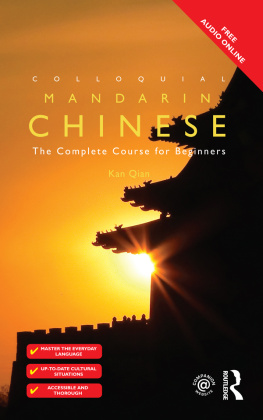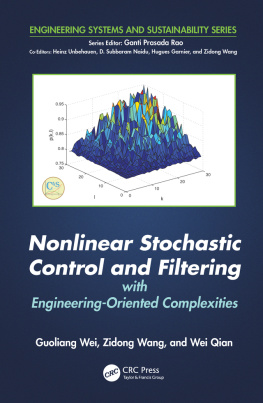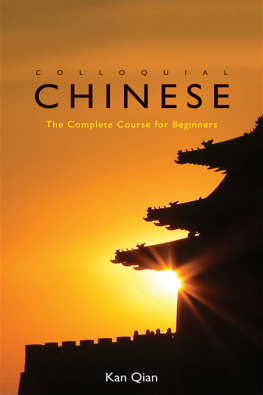Wenrong Qian - The Economy of Chinese Rural Households
Here you can read online Wenrong Qian - The Economy of Chinese Rural Households full text of the book (entire story) in english for free. Download pdf and epub, get meaning, cover and reviews about this ebook. year: 2020, publisher: Palgrave Macmillan, genre: Home and family. Description of the work, (preface) as well as reviews are available. Best literature library LitArk.com created for fans of good reading and offers a wide selection of genres:
Romance novel
Science fiction
Adventure
Detective
Science
History
Home and family
Prose
Art
Politics
Computer
Non-fiction
Religion
Business
Children
Humor
Choose a favorite category and find really read worthwhile books. Enjoy immersion in the world of imagination, feel the emotions of the characters or learn something new for yourself, make an fascinating discovery.
- Book:The Economy of Chinese Rural Households
- Author:
- Publisher:Palgrave Macmillan
- Genre:
- Year:2020
- Rating:3 / 5
- Favourites:Add to favourites
- Your mark:
- 60
- 1
- 2
- 3
- 4
- 5
The Economy of Chinese Rural Households: summary, description and annotation
We offer to read an annotation, description, summary or preface (depends on what the author of the book "The Economy of Chinese Rural Households" wrote himself). If you haven't found the necessary information about the book — write in the comments, we will try to find it.
The Economy of Chinese Rural Households — read online for free the complete book (whole text) full work
Below is the text of the book, divided by pages. System saving the place of the last page read, allows you to conveniently read the book "The Economy of Chinese Rural Households" online for free, without having to search again every time where you left off. Put a bookmark, and you can go to the page where you finished reading at any time.
Font size:
Interval:
Bookmark:
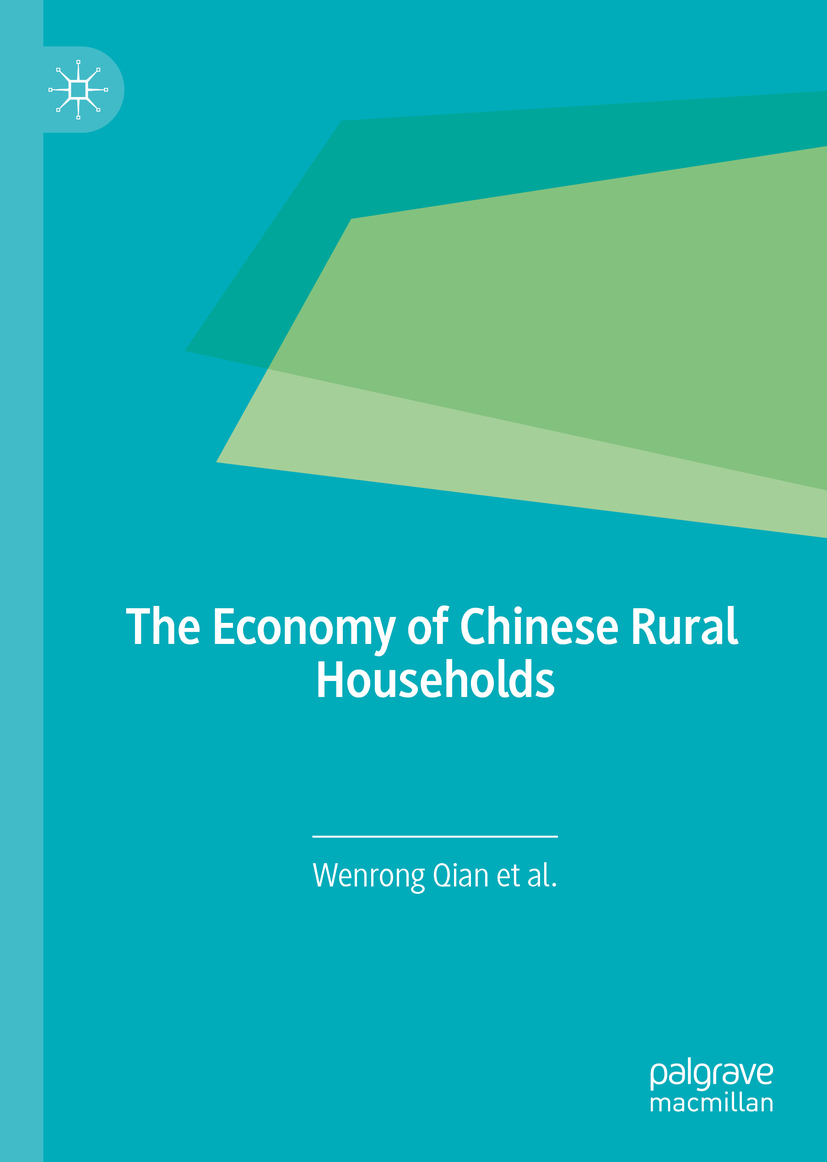


Jointly published with Zhejiang University Press
The print edition is not for sale in the Mainland of China. Customers from the Mainland of China please order the print book from: Zhejiang University Press.
Based on a translation from the Chinese language edition: 2016 by CARD Copyright Zhejiang University Press, 2017 All Rights Reserved.
This Palgrave Macmillan imprint is published by the registered company Springer Nature Singapore Pte Ltd.
The registered company address is: 152 Beach Road, #21-01/04 Gateway East, Singapore 189721, Singapore
China is the biggest developing country in the world; issues of agriculture, rural development and farmers are always the fundamental concern in the modernization of our country. Reform of China started from rural areas. Chinas rural development has made tremendous achievements in 40 years of reform and opening-up. Total grain output and farmers net income continue to increase. According to the existing standards in China, namely, per capita annual income of 2300 yuan (2010) in the calculation of the poverty line, poverty population decreased from 770 million in 1978 to 30 million in 2017 and the poverty incidence fell from 97.5% to 3.1%, equivalent to the reduction of nearly 800 million poverty population given the natural population growth factor. However, up to now, Chinas rural economic development still faces serious problems: the process of factors marketization lags behind the reform of commodity marketization, which restricts the integrated development of urban and rural areas. And the dual economic and social structure of urban and rural areas has not been completely eliminated. Under the background of narrowing the income gap between urban and rural areas, there is still an imbalance in the distribution of social security resources. The trend of widening differences between workers and peasants, between urban and rural areas, between regions and between classes has not yet been fundamentally reversed. The situation that agriculture is a weak industry, rural areas lag behind communities and farmers are vulnerable groups has not been fundamentally changed. Integrated development of urban and rural areas has become a major challenge facing Chinas rural economy and even Chinas modernization process, and the effective promotion and implementation of relevant reform measures and policies to a large extent depends on the comprehensive and accurate grasp of the current situation and trend of Chinas agriculture, rural areas and farmers development.
The household is the most basic unit of society. It is also the most fundamental social cell constituted by marital, blood and adoptive relationships. Rural households, on the other hand, are the basic organizational unit of rural society that combines production and social lives. Rural households are the basic units of rural consumption and demands as well as the supply side (including labor, capitals) of production factors. The China Rural Household Panel Survey (CRHPS) launched by Zhejiang University (hereafter referred to as ZJU) aimed at setting a baseline for investigating rural issues in China. This comprehensive survey involved complete information on Chinas rural households, including their basic household structure, employment, income and expenditure, household wealth, agricultural production and management, land utility and circulation, migration of population and urbanization, financial behavior, health and social security, education and training, and so on. The CRHPS could scientifically record and analyze the transition of Chinas rural households and integrate the multidimensional information of society through rural families at the micro level. It could also help us understand the development of rural China in the dimensions of society, economy, politics, culture, and resources and environment, as well as the basic features of rural consumption and demand, their production factors and the changes in their supply from a micro level. By continuously tracking and investigating all aspects of Chinas rural households and regularly recording their all directional transitions using micro-statistics, the objective reality of Chinas rural households could be thoroughly understood and the inner mechanism of the various kinds of social problems could be probed into.
In the final chapter of this report, we further summarized and refined what we think is important and put forward our own viewpoint and the conclusion. Readers may not have to agree to all of our points of view, but we hope it will have a certain reference value for the people who are researchers on the Chinese rural issue and concerned about Chinas rural development.
The authors of this book are Wenrong Qian, Shaosheng Jin, Jianqing Ruan, Rui Mao, Binlei Gong, Qing Yuan, Xin He, Sitong Chen, Tao Jiang, and Liangyan Guo. Due to the limited level of the author, coupled with the time and energy constraints, there must be unavoidable errors in this book; please let us know if you have any questions.
Rural household is the basic organizational unit of rural society that combines production and social lives. Rural households are the basic units of rural consumption and demands as well as the supply side (including labor, capitals, etc.) of production factors. To obtain the maximum satisfaction, rural households not only need to purchase various types of consumptive goods and the needed households productive materials from the market but also need to obtain income by utilizing the labor, material and time resources of the whole household. As resources are always scarce and limited, the goal of the decisions made by the entire rural household is to maximize the efficiency of these resources. Therefore, like other rational economic entities, rural households make decisions frequently in terms of production and consumption to maximize profits or efficiency.
Font size:
Interval:
Bookmark:
Similar books «The Economy of Chinese Rural Households»
Look at similar books to The Economy of Chinese Rural Households. We have selected literature similar in name and meaning in the hope of providing readers with more options to find new, interesting, not yet read works.
Discussion, reviews of the book The Economy of Chinese Rural Households and just readers' own opinions. Leave your comments, write what you think about the work, its meaning or the main characters. Specify what exactly you liked and what you didn't like, and why you think so.

